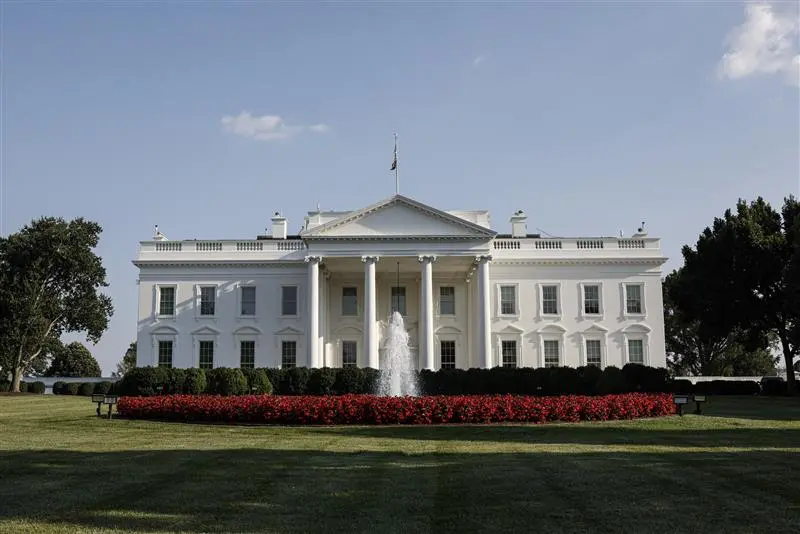It’s been two weeks since the 2024 election, where the presidency and 468 congressional seats were contested. As of last Wednesday, the results are official: the GOP will hold a trifecta under President-elect Trump.
While the party’s agenda is still taking shape, one thing is clear—its policies will diverge from the Biden White House and its Democratic allies.
Jefferies’ Sustainability & Transition Team spent the past two weeks engaging over two thousand investors and companies on the implications of the election for global investment, the energy transition, and sustainability. Here are eight takeaways from those discussions.
- Which Republican Party Will Prevail?
Populism has taken root in the Republican Party. President Trump made grains across nearly every major demographic, and he performed exceptionally well in working-class communities.
Within the party, the team sees a growing divide between two camps:
- Traditional Republican Orthodoxy: Focused on deregulation and tax cuts.
- Populist Economics: Focused on protecting workers via tariffs; supportive of antitrust measures and skeptical of big tech; and supportive of government investment in key sectors.
The world is closely monitoring President Trump’s appointments to gauge the party’s trajectory, as the investment implications could vary significantly depending on which philosophy takes precedence.
- The Return of Industrial Policy & Tariffs
For years, industrial policy fell out of favor as a tool for promoting domestic industries and driving growth in developed markets. Recently, there’s been a shift. In 2023, more than 2,500 new industrial policy measures were implemented globally, ranging from tariffs to subsidies and state-directed financing.
The Trump administration is expected to lean heavily on industrial policy to boost U.S. competitiveness. Tariffs will likely take center stage, alongside continued support for key sectors like defense and energy. The campaign has also floated ideas such as creating a sovereign wealth fund to support U.S. industries.
Investors will need to integrate these policies into their strategies.
- Brace for Deregulation
Jefferies has tracked deregulation closely for months (see here, here, and here), anticipating a significant shift in the event of a Trump victory.
Now, there are plans for a new Department of Government Efficiency (DOGE), with Elon Musk and Vivek Ramaswamy at the help. Musk hopes to cut $2 trillion from the federal budget. Throughout the campaign, Trump regularly called for reducing the administrative state and pursuing widespread deregulation.
The specifics of this agenda—and its feasibility—remain uncertain. However, the potential impact on investors extends far beyond ESG and climate. Companies and investors should take a hard look at existing regulations, particularly those affecting competition, as many could be targeted for overhaul.
- Tax Cuts & Tariffs: Will Trump’s Policies Be Inflationary?
2025 will be a year of tax reform, with the Tax Cuts and Jobs Act (TCJA) expiring at the end of the year. Proposals for deficit-funded tax cuts and a high debt-to-GDP ratio have sparked bond market concerns over long-term (10-year) rates.
Since both the federal government and many companies often borrow at 10-year+ rates, changes in these rates over the next four years will heavily influence the federal deficit and corporate investment plans.
- The IRA Will Not Survive in Its Current Form
Heading into the election, conventional wisdom held that the Inflation Reduction Act (IRA) wouldn’t be repealed, given that 80% of its funds were directed to Republican districts. In September, Jefferies flagged potential downside risks to this assumption, and in October 2023, noted that the IRA could fall short of its goals unless key structural issues—like permitting—were addressed.
It’s now clear that significant efforts will be made to amend the IRA. Even without a full repeal, the incoming administration could pursue administrative actions that would effectively achieve the same outcomes as repealing the bill.
- The U.S. Energy Transition: Not All Is Lost
Several areas of the energy transition are poised for growth under a Trump presidency, whether due to federal indifference, alignment with favored industries, or state-level initiatives. Despite policy uncertainty and a potential shift in direction, the U.S. remains a highly attractive region for energy transition investments.
Investors see the most opportunity in the following sectors over the next four years:
- Natural Gas
- Carbon Capture & Sequestration
- Critical Minerals
- Transmission Reform (State & Federal)
- Grid-Enhancing Technologies (e.g., Dynamic Line Rating, Advanced Distribution Management Systems)
- Nuclear
- Geothermal
- Biofuels
Executives consistently highlight favorable capital and regulatory environments, a skilled labor force, and access to low-cost feedstocks (e.g., natural gas) as reasons the U.S. stands out, regardless of federal policy. Jefferies anticipates that specific areas of the transition will gain traction based on strong unit economics, rather than relying heavily on public subsidies.
- Look Beyond the U.S. on Energy Transition
Although the U.S. may pull back from global climate initiatives, the rest of the world will press ahead. China and the EU27 lead the world in real-economy capital formation for low-carbon technologies. 80% of the global population lives in net importers of fossil fuels, so the incentive to decarbonize will persist.
One unintended consequence of the Inflation Reduction Act (IRA) is that it has diverted investor attention away from decarbonization opportunities outside the U.S. For instance, Japan’s Green Transformation (GX) Plan—a ¥150 trillion initiative to decarbonize its economy—offers significant investment opportunities but has largely been overlooked.
Investors should broaden their focus to include other major policy programs that are shaping global decarbonization efforts.
- Will the U.S. Try to Compete with China on Decarbonization?
The U.S. must decide whether competing with China and other nations on climate and the energy transition fits into its broader Great Power Competition strategy.
The Inflation Reduction Act (IRA), CHIPS Act, and Bipartisan Infrastructure Law (BIL) were designed to position the U.S. as a leader in key areas like AI, semiconductors, biotech, and future energy systems. Significant changes or rollbacks to these initiatives could risk ceding ground in one or more of these strategic sectors.
++
Policy expectations for the next four years will evolve as President-elect Trump’s statements and appointments unfold in the coming months. For now, investors are preparing for a regulatory and investment landscape that contrasts sharply with the one shaped by the Biden administration.
For ongoing insights on the energy transition, climate investment, and related policy, stay connected with Jefferies’ Sustainability & Transition Team.




